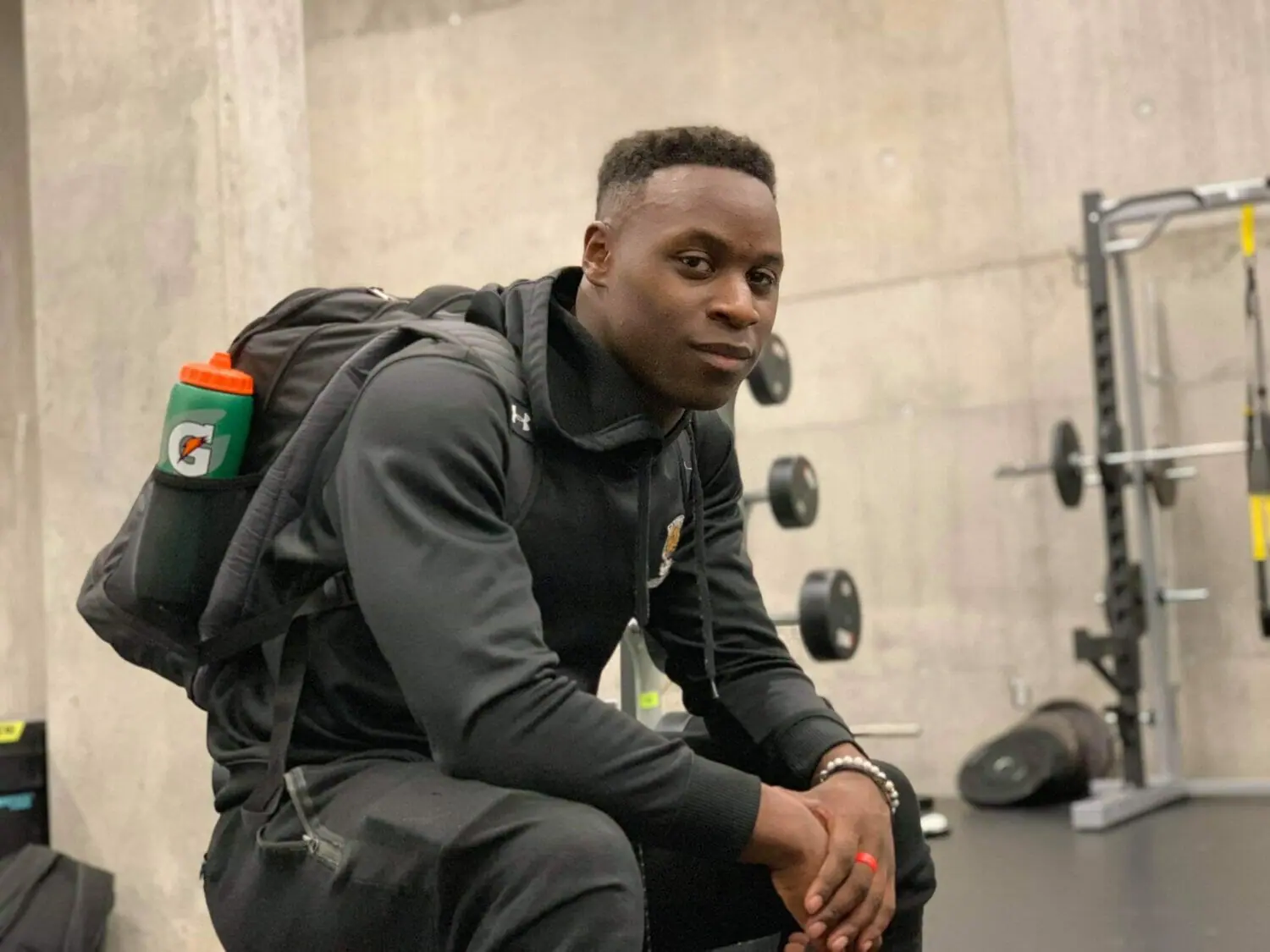Josh Lunda’s first three years running for the Dalhousie University Tigers seemed to be going great.
In the 2014-2015 season, the sprinter was named the AUS Rookie of the Year. In the 2016-2017 season, he was on the 4×200 relay team that set a new AUS record of 1:31.33, along with Matthew Coolen, Stephen Belyea and Mike van der Poel.
Then last year, he left the team.
“I don’t want to say I left arrogantly, but I left very impatiently,” Lunda says.
Frustrated with his progress and caught up in a drive to succeed, Lunda decided to train under former Olympian Adrienne Power for the 2017-2018 season.
“He’s got a tremendous growth mindset, so he really wants to improve,” says Mike Bawol, the lead sprints coach for the Tigers. “I think that can be too much at times for people if you want to improve so badly that you’re willing to sacrifice relationships and be a little too focused.”
Under the different program last year, Lunda was training five times a week, taking five classes at school and working 20 hours a week. He found juggling everything difficult, and the heavy volume of training wasn’t working for him.
“I thought I wasn’t doing enough and then when I got to doing more, it was actually too much,” Lunda says.
Without enough time to rest, he pushed himself closer to injury. Not competing as a university athlete meant there were fewer meets he could run in, and in those he could he didn’t see the results he wanted. He also missed the team environment.
Re-joining the Tigers
At the end of last school year, Lunda took a month off to let his body recover and decide what to do. This year, he rejoined the Tigers.
During his time away from the team, Lunda maintained a good relationship with Bawol, which, “facilitated his comeback into the group,” says Bawol. “It was such an easy transition for him.”
It’s been quite the comeback. In the Tigers’ first meet back after the winter break, Lunda ran a personal best time of 6.94 in the 60m. He continued that momentum at the McGill team challenge at the end of January where he ran an even better time of 6.87, which qualified him for nationals.
“At that point, I knew that me coming back was the perfect decision,” he says, grinning. “That just really told me I’m so happy to be back.”
A relaxed environment
He’s now taking four classes at school and training four times a week, which he says has made a big difference — especially in a training program that stresses staying healthy.
“When I get home, I’m tired but I’m not questioning my life like, ‘Should I still be doing this now?'” he says. “It’s been great to be able to run not broken this season.”
Along with finding that fine training balance, being back in a team environment, among other athletes Lunda considers his family, has been a big benefit.
“It’s such a fun environment to be around and I love being here,” he says. “The fact that I’m having fun, I think it’s definitely contributing to why I’m doing so well.”
From a coaching standpoint, Bawol agrees.
“He’s learned a lot about himself and he’s really grown up. He’s so much more mature now than he used to be,” says Bawol. “He’s taking things a little less seriously, but at the same time I think that’s really healthy for him.”
Lunda is tied for third in the country for the 60m at the time of writing, but he doesn’t want to look too far ahead to nationals.
“I’m just trying to get through the conference championships and see what happens,” he says. “If I get ahead of myself, I might psych myself out, so I want to be patient and relax.”


Recent Comments